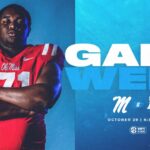Column: Should the Multi-Sport Athlete Be a Thing of the Past?
For decades upon decades, it was the norm for high-school students involved in athletics to participate in multiple different sports. Athletes wore their prowess in various sports like a badge of honor. However, as we are finding our footing in this new decade, it seems as if many student-athletes are choosing a singular sport to focus all their time and attention on.
To begin, what are we constituting as a specialized-sport athlete? The quick and easy way to describe that is one that only plays a single sport. However, I think it would be fair to consider one that plays multiple sports but focuses the majority of their practice time into a particular sport over the others, as well.
While small schools typically see their pool of athletes spread their talents out to multiple athletic programs almost out of necessity, it seems as if programs at larger schools are making the multi-sport athlete a thing of the past. The question is: what is driving this movement to specialized-sport athletes?
Right off the bat, the relative size of schools would surely play a part. For instance, according to numbers released for reclassification by the MHSAA in 2018, my alma mater West Union sat at an enrollment of 154 students in 9th through 12th grade. Looking at the opposite end of the spectrum, Tupelo High is the largest school of the state at 1,892 high school students.
When I was at West Union, many of our athletic programs relied on students being multi-sport to be competitive at the highest level possible. Tupelo is obviously have a much larger talent pool to pull from, which allows coaches to be much more receptive of athletes focusing on a singular sport to hone their craft. While some athletes are still just too gifted to not be wanted in multiple athletic programs, one honing their craft in one sport is much easier to accept when there are hundred of other talented options to look to for replacement.
One case I can pull from personal experience comes from local Saltillo High School. My cousin Jackson Finch dipped his toe in almost every sport possible in his early years, including football, basketball, baseball, and soccer. However, around the age of 13, he focused all his time and energy into basketball. He was able to become a starter in his senior year for the Tigers and received All Lee County honors.
When asked why he decided to specialize in basketball, Finch cited his more natural talent in basketball and desire to play for the on-the-rise Tigers as the reasons to step away from other forms of athletics.
“Knowing how much talent and how many people would try to play basketball, I knew if I wanted to have valuable playing time, I would need to focus all my time and efforts into improving on the court.”
To fully understand the pros and cons of competing in multiple sports, let us look forward to the college level of athletics.
I have heard the question posed by many if college coaches prefer to recruit a athlete that specializes in that program’s particular sport or if they go after the talent-diverse multi-sport recruits.
While every coach is going to have their preferences on who to recruit based on personal and athletic traits and behaviors, there are a few instances in which coaches come out and support high school athletes participating in multiple athletic programs. Urban Meyer, former Ohio State and Florida head football coach, is one of the biggest names to publicly say he only recruits multi-sport athletes.
Again, one coach does not represent the entire NCAA, NJCAA, or NAIA as a whole, but the statistics do show that many college athletes did not only participate in their main sport over their high school years. At the Division I level of football, 88% of players were multi-sport athletes.
Out of the college athletes that specialized in one sport, they began to do this at around age 15, which can range from freshman to junior year. So, while specializing in a single sport is becoming more common, it is also beginning much later in one’s athletic career than picking one sport from their early childhood to focus on.
Finally, looking at the professional level, the multi-sport athlete seems to be much more common over those who pick one. Of the 1.6% estimated football players that make it into the NFL, an average of nine out of ten played multiple sports in high school, according to a study from the American Orthopedic Society for Sports Medicine published by Stack.com. Also from that study, only 22.3% of pro athletes said they “would want their own child to specialize to play a single sport during childhood/adolescence.
Drew Brees, quarterback of the New Orleans Saints, has publicly stated that he would encourage any athlete to play multiple sports, and he credits many of the strides he has made as a quarterback to his background in other areas.
Said Brees, “If there’s one thing I could say about youth sports, I think kids specialize too soon. I get all this travel ball and everything else, but I think that could be counter-productive. Because it forces these kids to feel like they need to specialize so soon, and they stop playing sports that they love and sports that can help them be better at their main sport. I credit tennis for a lot of my footwork in the NFL. I credit baseball and basketball with certain fundamentals and athletic movements (that relate) to what I do as a quarterback. You tell me the season, I’ll tell you the sport you should be playing. Kids should be playing as many sports for as long as they possibly can. Don’t feel like you have to specialize anytime soon. Because what you don’t realize is that all the sports combined is what makes you the athlete that you are. And eventually, you will have to specialize. But once that time comes, you will benefit greatly from all those other sports you played.”
So, the background and statistics have been laid out. Now, what’s my opinion on the matter? Obviously, I was not a college athlete, so it may be hard for me to speak on the matter to those chasing after a scholarship or chance to play at the next level.
However, that does not change my opinion. I, like Brees, would encourage athletes to play as many sports as they can and want to before they have to make that tough choice. As someone who stepped on the court for the last time in 2018, I miss playing basketball every day. Those moments do not come back around, so I believe it is important for a young athlete to take every opportunity they can to enjoy themselves to the fullest and expand their horizons.
It seems as if so many athletes are pushed away from playing all the different sports they love for the statistically-unlikely chance at a college scholarship. While accomplishing all of that is great, the burnout can become real and make the love for that sport go away. Is that not why sports is so special? Playing for the love of the game?






